Two skinny mutts fight at the door of a church the color of mud. Children are waving off spare roosters and playing pat-a-cake with one another in the Dominican heat.
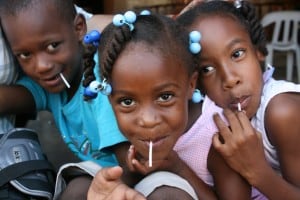
As our bus of foreigners pulls up and spills out like a car full of clowns, the children spot the cameras and jostle to pose and mug for us singing out, “una photografia!”
Soon a cacophony of arms is grabbing and hanging on me. Like my own barrelful of monkeys, reaching in my purse and pulling my hair. Soon, they’ve discovered the secret stash of suckers in my purse and a chorus of “un ballon, un ballon” surrounds me.
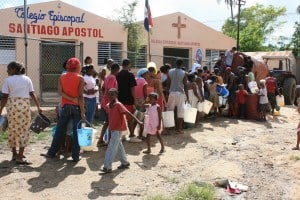 I visit the house of Yanelis, a girl who would be president of the drama club, if schools around here had drama clubs. On the way to her home, she skips ahead as we pass an elbowing line of moms and young men carrying buckets and jugs. The water truck has come. They haven’t had water for two weeks. At the front of the line a fight breaks out. We keep walking.
I visit the house of Yanelis, a girl who would be president of the drama club, if schools around here had drama clubs. On the way to her home, she skips ahead as we pass an elbowing line of moms and young men carrying buckets and jugs. The water truck has come. They haven’t had water for two weeks. At the front of the line a fight breaks out. We keep walking.
When she was younger, Yanelis would walk in the morning with her three brothers, searching for green bottles poking out of the litter-strewn ground of the batey, the old sugarcane plantation they live on.
They wouldn’t make much from the trash they found and recycled, but at least a few coins to plunk into their mom’s hand, as she scraped to feed her six kids on the six bucks her husband brought home each day. Mami would cook one big pot of rice on the stove each day and they would eat it ’till it was gone.
But Yanelis doesn’t go out to work with her brothers anymore. Now she dreams not of picking up green glass for a living, but of being a doctor. She was registered at the Compassion-assisted child development center near her home. Her mother now has hope for her daughter. She waves toward her son sitting in the corner, “My sons are already done. It’s too late for them.” We encourage them that it’s not, in fact, “too late.” But Yanelis is now the hope of her mother.
When we ask what it is she hopes for, she says, “I hope Yanelis won’t have to live the way I have lived.” Yanelis’ facetious grin assures us of this. She’s a young girl of extreme confidence who has firmly grabbed hold of the idea that she can accomplish anything with God. 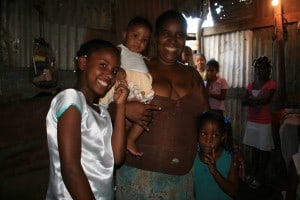
Before we go, we pray for the family, for their home. The mother hopes to patch up the home of corrugated tin and scrap wood so it won’t leak so much. Backing toward the old stove to take a picture of the family, I step in a mud puddle. The mother is tidy, but that’s just how it is when you live with a leaky roof.
As we walk back to our car, we pass four women sitting on a dusty porch. They call out, asking for me to take their picture — they’re the ones who didn’t get any water again this week.
The situation on the batey is still hard as the dirt ground, but there are now a few shards of hope gleaming out of it, like the green glass bottles poking out that Yanelis hunts for no more.


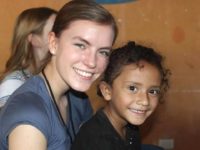
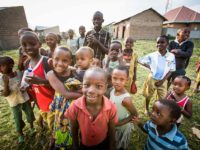
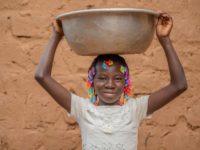


5 Comments |Add a comment
Oh, sorry for not defining my terms! A batey is where sugar cane plantation workers live. (Or sometimes, as in this case, former workers.)
I still don’t know what a batey is, sounds like a poor community. One time on a trip to the Domincan Republic we were walking to one of the communities to share bible stories and testimonies and out of nowhere these people called us over to as I remember looked like a little lemonade stand built of wood and gave us some sugar cane to eat. It was very good and very needed b/c we were hot. Thanks for your story Amber!!!
Thanks for this, Amber. The two bateys I have previously visited stand out in my mind as the very poorest of the impoverished areas I’ve seen. In those old sugarcane communities, the spiritual poverty–the hopelessness and, in at least one of them, the continuing influence of voodoo–has been palpable. I came away with a heavy heart for those people, and for the pastors who endeavored to make Jesus Christ real to them.
I love that last line!
You painted the picture very, very well!